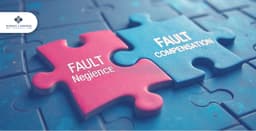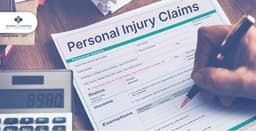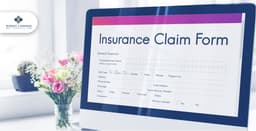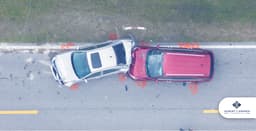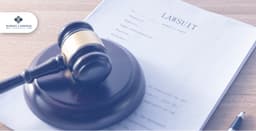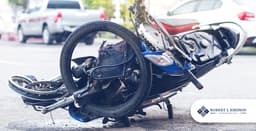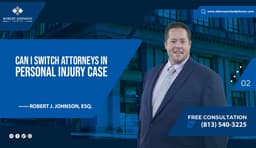
March 8, 2025
Motorcycle Accident Claims What You Need to Know
It happens in a blink—the open road, the hum of the engine, the freedom of movement. And then, suddenly, it’s gone. The world tilts, metal scrapes against asphalt, and in an instant, everything you know is replaced by pain, confusion, and a long road ahead.
The injuries, the endless paperwork, the weight of what’s been lost—it can feel like the situation is slipping out of your hands. However, doing nothing only deepens the chaos. Taking action isn’t just about survival; it’s about reclaiming control before the moment swallows you whole. So where do you begin? What choices will shape not just your recovery but the life waiting beyond this moment? Let’s take it step by step.
Step 1: Florida Motorcycle Accident Laws That Every Rider Should Know
What Makes Motorcycle Accident Laws Different?
In Florida, motorcycle riders have different insurance requirements compared to car drivers. While motorists are required to carry Personal Injury Protection (PIP) insurance, motorcyclists are not. This means that if you’re involved in an accident, you cannot rely on PIP to cover medical expenses or lost wages.
Instead, you’ll need to file a claim with the at-fault driver’s insurance or pursue a personal injury lawsuit. This can be a bit more complex than dealing with a typical car accident claim, but it’s essential to understand your options and take the right steps to protect yourself.
Florida’s Comparative Negligence System
Florida uses a pure comparative negligence system when determining liability in accidents. This means that even if you were partially at fault for the accident, you can still recover compensation for your injuries. However, your recovery will be reduced based on your percentage of fault.
For example, if the accident was deemed to be 25% your fault, you would still be eligible for damages, but your compensation would be reduced by 25%.
Step 2: Immediate Actions to Take After a Motorcycle Crash
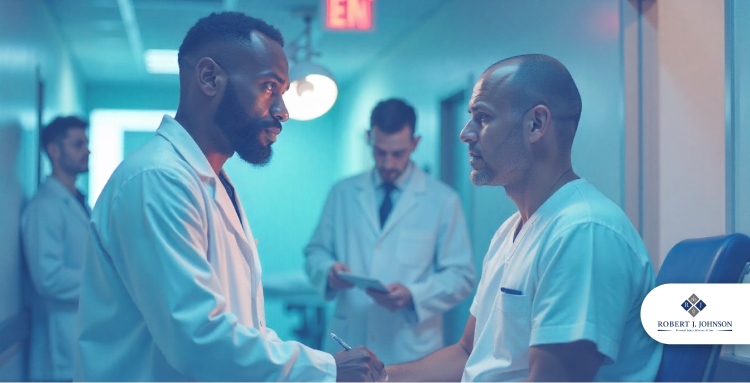
After a motorcycle accident, your first priority is ensuring your safety and getting the medical care you need. Quick action is important to protect both your health and your legal rights. Here's what you should do right after the crash:
Ensure Safety and Seek Medical Attention
Your health should always come first. Even if you don’t feel seriously injured right after the crash, it’s essential to get checked by a healthcare professional. Injuries such as concussions, whiplash, or internal damage can sometimes be hidden, only showing symptoms later. Delaying treatment could also hurt your chances of getting fair compensation, and there is a fixed timeline to file the claim after the accident. Moreover, it might be harder to prove that the injury resulted from the accident.
Document the Scene
As soon as it’s safe to do so, start gathering as much evidence as possible. Take clear photos of the accident site, your motorcycle, and any visible injuries. Don’t forget to capture details like skid marks, traffic signals, and road conditions. Witnesses can provide valuable statements, so gather their statements if possible. Lastly, ask for a copy of the police report; it’s an official accident record and can be vital in establishing fault.
Notify Your Insurance Company
Contact your insurance company as soon as possible to avoid any claims denial, but stick to the facts when speaking with them. Avoid admitting any fault or speculating on what happened. Keep the conversation brief, and don’t volunteer any information that could be misinterpreted or used against you. Your detailed statement should be saved for when you have legal representation or when you're sure of all the facts.
Step 3: Build a Winning Motorcycle Accident Claim
Proving negligence not only helps you recover damages but also ensures that the responsible party is held accountable. Here’s how you can do it:
Gather Evidence
The strength of your claim depends largely on the evidence you can present. Start by collecting all relevant documents, such as your medical records and bills, which will show the extent of your injuries and the treatments you've undergone. You should also obtain repair estimates for your motorcycle to document the property damage.
If there are traffic cameras in the area, request footage of the accident—this can provide crucial proof of what happened. In addition, trying to include witness testimonies can be invaluable. Make sure to get their contact details and statements, as their accounts can help support your version of events.
Prove Negligence
To secure compensation, it’s important to prove that the other party was negligent. This might include showing that the driver was distracted (e.g., texting while driving), speeding, or acting recklessly.
If road conditions played a role in the accident—such as potholes or unclear signage—documenting that is crucial as well. You might also need to enlist expert witnesses to reconstruct the accident. These experts can provide a detailed analysis of the scene and determine the cause of the crash, further strengthening your claim.
Step 4: How to Calculate Damages After a Motorcycle Accident
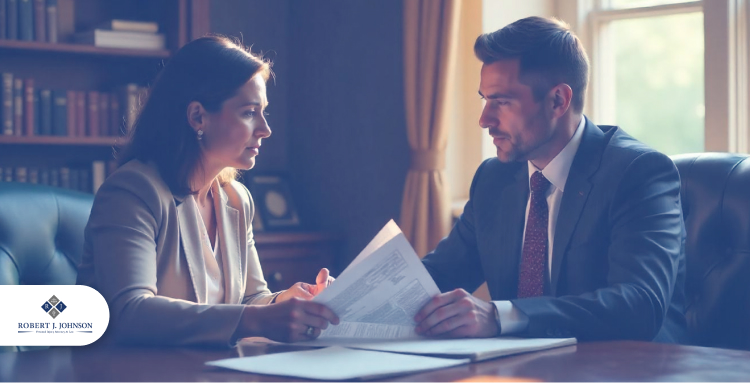
After a motorcycle accident, you may be entitled to compensation for a range of damages under Florida law. It’s important to understand the different types of damages you can recover, as this will play a key role in the settlement or trial process.
What Can You Recover?
Medical Expenses: This includes the costs of immediate medical care, hospital stays, surgeries, and ongoing rehabilitation. Florida law allows you to recover past, current, and future medical expenses, so be sure to keep detailed records of all treatments and doctor visits.
Lost Wages: If your injuries prevent you from working, you can recover compensation for the income you’ve lost during recovery. This also includes future lost wages if your ability to work has been permanently impacted.
Pain and Suffering: Unlike medical bills or lost wages, pain and suffering are non-economic damages meant to compensate for the physical pain, emotional distress, and mental anguish caused by the accident. Florida’s laws allow you to recover from the toll the accident takes on your quality of life.
Property Damage: If your motorcycle was damaged in the accident, you can recover the costs for repairs or replacement. This also covers any damaged gear, such as helmets, jackets, and other safety equipment.
Robert J. Johnson: Florida’s Trusted Motorcycle Accident Attorney
Motorcycle accident claims can be uniquely challenging, often complicated by insurance companies’ biases against riders. Choosing the right attorney is a decision that can shape the outcome of your case. Robert J. Johnson, ESQ, with his extensive experience, knows exactly how to handle these roadblocks. He takes charge of negotiations with insurance adjusters and tackles those tactics designed to minimize your compensation.
Our team collects key pieces of evidence, including medical records, expert testimony, and accident reconstructions, to fully demonstrate your case. If a fair settlement isn’t reached, we’re ready to take your case to court and fight for the compensation you're entitled to. We offer a free consultation allowing you to discuss your case with no initial financial commitment.

